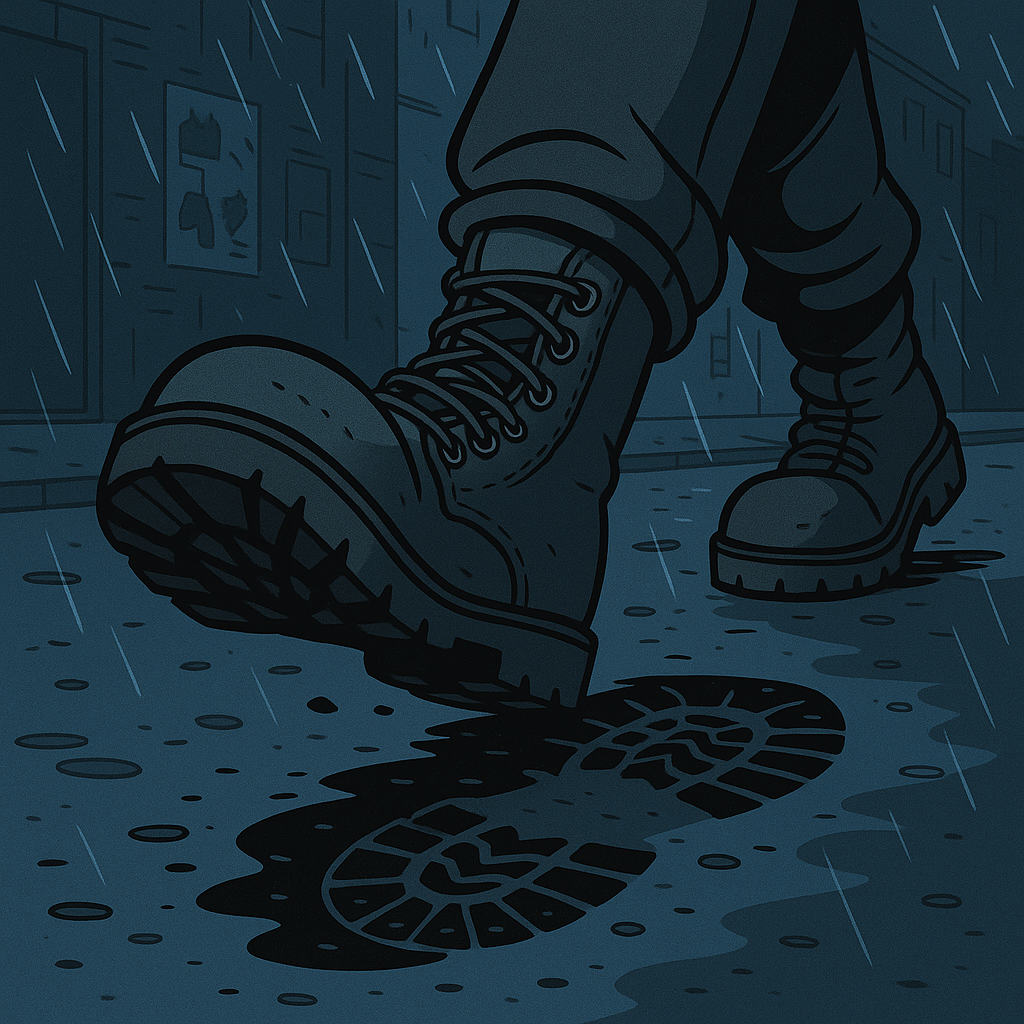
The First Steps
Share
The cold still clung tightly to his skin, the silence of the broken ice still trapped in his breath, and although the rift behind him seemed to slowly close again, he knew that nothing would ever be as it once was; the ancient peace he had shattered could never return to the untouched void from which he had broken free.
His feet found the ground with a weight that could not be measured in kilograms, but one that could be felt in the shifting of the air, in the stiffening of the moment, in the trembling of the space he occupied — as if even the stones beneath him hesitated, unsure whether they should carry his steps or crumble beneath the weight of someone who had not come to adapt, but to exist on his own terms, in his own rhythm, in his own truth.
The first step was no accidental movement, no hesitant attempt, no uncertain beginning; it was a deliberate act, a choice without return, a wordless agreement with the world that he would settle here, that he would anchor himself in the story of streets, walls, and shadows that did not yet know him, but would inevitably have to yield to his presence, to his tempo, to his unwritten law.
Articmace walked — not rushed, not longing for a destination, not fleeing something behind him, but with a calm, steady stride that did not ask for space but simply took it, that did not ask for recognition but could not be ignored, that left no marks in the form of screaming signs or loud gestures, but carved itself into the memory of the places he passed, like a soft scratch that deepened the longer he continued to move.
The city he entered was not hidden beneath snow, knew no white plains in which he could see his reflection, but offered him walls layered with stories, remnants of voices that had once sounded loudly but now faded into half-torn posters, into wind-worn stickers on battered electrical boxes, into streets that had lost their power through generations who had forgotten what it meant to push against the current, what it meant not to bow to the soft laws of habit and comfort.
Articmace did not learn through words, nor through lessons others might try to impose upon him, but through the feeling of structures beneath his fingertips, through following the lines others had left behind, through breathing the air that hung heavy with unspoken thoughts, with dreams that no longer dared to grow, with strength that had fallen asleep.
He observed — not with the urgency of someone eager to quickly understand, not with the hunger of someone desperate to make an immediate impact, but with the patient intensity of someone who knew the city would reveal itself, layer by layer, crack by crack, to those who remained long enough to truly see without the need to possess it, but with the will to understand it, to feel it, to become part of it.
His steps drew attention, not because they made noise, not because he forced himself upon the streets, but because he walked differently — not along the paved paths, not to the rhythm the city demanded, but in his own time, in his own cadence, as someone who was not guided by signs or rules, but by an inner compass that did not waver, that did not sway, that did not doubt.
And so, in the shadows of parking garages, beneath bridges where the echoes of others still lingered faintly, in alleys where silence had clung tightly to the walls, he found them — faces without names, glances without questions, bodies that did not merge into a group but who nonetheless recognized him as someone who had come to stay, as someone who did not ask whether he was welcome, but who simply was, who was visible, who was inevitable.
They looked, he looked, and no words were exchanged, because sometimes language is too small for what passes between those who feel that something new is arising — something that has not yet taken shape but already carries weight, something that is not yet a story but already moves in a direction, something that neither invites nor rejects, something you can follow without knowing why.
And as the city slowly held its breath, as the walls began to whisper his name, as the silence filled with the looming presence of something that would grow far larger than it had ever permitted, Articmace continued to take his next steps — without hurrying, without offering explanations, without wondering who might follow him, but with the certainty that every movement would bend the space around him, that every step would not only touch the street but also etch itself into the memory of those who watched him pass.
He needed to leave nothing behind. His existence was his trace.
Not in chalk. Not in paint. Not in shouting. But in that which lingered after eyes turned away, after the day moved on, after life found its usual speed again — while the feeling of him still remained — deep, quiet, indelible.
Articmace was not a story being told.
He was the story.
His first steps were not the beginning of a journey, not the start of a path destined to end one day, but the marking of a presence that would root itself, that would spread, that would slowly but surely infiltrate the pores of the city, the thoughts of those who believed they had already seen everything, already understood everything, already controlled everything.
His first steps were not about reaching somewhere.
They were about changing something.
And as he walked on, and the air slowly filled with his rhythm, the city felt the inevitable:
He is here.
And he is here to stay.
